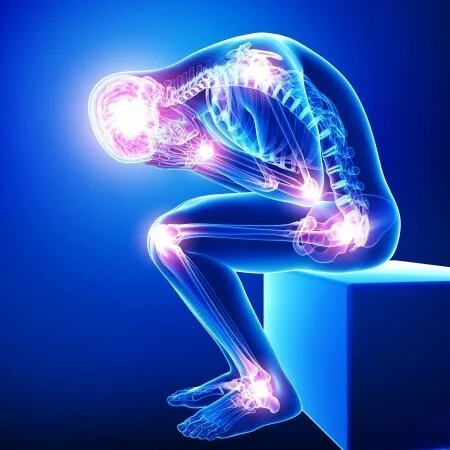
Psychedelics as anti-inflammatory agents
ABSTRACT: Serotonin (5-hydroxytryptamine, 5-HT)2Areceptor agonists have recently emerged as promisingnew treatment options for a variety of disorders. The recent success of these agonists, alsoknown as psychedelics, like psilocybin for the treatment of anxiety, depression, obsessive-compulsive disorder (OCD), and addiction, has ushered in a renaissance in the way thesecompounds are perceived in the medical community and populace at large. One emergingtherapeutic area that holds significant promise is their use as anti-inflammatory agents.Activation of 5-HT2Areceptors produces potent anti-inflammatory effects in animal models ofhuman inflammatory disorders at sub-behavioural levels. This review discusses the role of the5-HT2Areceptor in the inflammatory response, as well as highlight studies using the 5-HT2Aagonist (R)-2,5-dimethoxy-4-iodoamphetamine [(R)-DOI] to treat inflammation in cellular andanimal models. It also examines potential mechanisms by which 5-HT2Aagonists produce theirtherapeutic effects. Overall, psychedelics regulate inflammatory pathways via novel mechanisms,and may represent a new and exciting treatment strategy for several inflammatory disorders.

Psychedelics, but Not Ketamine, Produce Persistent Antidepressant-like Effects in a Rodent Experimental System for the Study of Depression
ABSTRACT: Psilocybin shows efficacy to alleviate depression in human clinical trials for six or more months after only one or two treatments. Another hallucinogenic drug, esketamine, has recently been U.S. Food and Drug Administration (FDA)-approved as a rapid-acting antidepressant. The mechanistic basis for the antidepressant effects of psilocybin and ketamine appear to be conserved. The efficacy of these two medications has not, however, been directly compared either clinically or preclinically. Further, whether or not a profound subjective existential experience is necessary for psilocybin to have antidepressant effects is unknown. To address these questions, we tested psilocybin, lysergic acid diethylamide (LSD), and ketamine in a rat model for depression. As in humans, a single administration of psilocybin or LSD produced persistent antidepressant-like effects in our model. In contrast, ketamine produced only a transient antidepressant-like effect. Our results indicate that classic psychedelics may have therapeutic efficacy that is more persistent than that of ketamine, and also suggest that a subjective existential experience may not be necessary for therapeutic effects.

Biosynthesis and Extracellular Concentrations of N,N-dimethyltryptamine (DMT) in Mammalian Brain
ABSTRACT: N,N-dimethyltryptamine (DMT), a psychedelic compound identified endogenously in mammals, is biosynthesized by aromatic-L-amino acid decarboxylase (AADC) and indolethylamine-N-methyltransferase (INMT). Whether DMT is biosynthesized in the mammalian brain is unknown. We investigated brain expression of INMT transcript in rats and humans, co-expression of INMT and AADC mRNA in rat brain and periphery, and brain concentrations of DMT in rats. INMT transcripts were identified in the cerebral cortex, pineal gland, and choroid plexus of both rats and humans via in situ hybridization. Notably, INMT mRNA was colocalized with AADC transcript in rat brain tissues, in contrast to rat peripheral tissues where there existed little overlapping expression of INMT with AADC transcripts. Additionally, extracellular concentrations of DMT in the cerebral cortex of normal behaving rats, with or without the pineal gland, were similar to those of canonical monoamine neurotransmitters including serotonin. A significant increase of DMT levels in the rat visual cortex was observed following induction of experimental cardiac arrest, a finding independent of an intact pineal gland. These results show for the first time that the rat brain is capable of synthesizing and releasing DMT at concentrations comparable to known monoamine neurotransmitters and raise the possibility that this phenomenon may occur similarly in human brains.

Me, myself, bye: regional alterations in glutamate and the experience of ego dissolution with psilocybin
ABSTRACT: There is growing interest in the therapeutic utility of psychedelic substances, like psilocybin, for disorders characterized by distortions of the self-experience, like depression. Accumulating preclinical evidence emphasizes the role of the glutamate system in the acute action of the drug on brain and behavior; however this has never been tested in humans. Following a double-blind, placebo-controlled, parallel group design, we utilized an ultra-high field multimodal brain imaging approach and demonstrated that psilocybin (0.17 mg/kg) induced region-dependent alterations in glutamate, which predicted distortions in the subjective experience of one’s self (ego dissolution). Whereas higher levels of medial prefrontal cortical glutamate were associated with negatively experienced ego dissolution, lower levels in hippocampal glutamate were associated with positively experienced ego dissolution. Such findings provide further insights into the underlying neurobiological mechanisms of the psychedelic, as well as the baseline, state. Importantly, they may also provide a neurochemical basis for therapeutic effects as witnessed in ongoing clinical trials.





